
Were Sorry For Any Inconvenience Template Design HighRes Vector Graphic Getty Images
1. I Apologize For The Inconvenience "I apologize for the inconvenience" is one of the best ways to show that you have inconvenienced someone. If you are genuinely sorry about it, this is a great phrase to use in your formal emails. Dear Thomas, I apologize for the inconvenience. I hope you forgive me once I've sorted out the rest of this.

Sorry For Any Inconvenience We apologize for any inconvenience this may have caused Let
I am sorry for the inconvenience. I am sorry for any inconvenience. The word "THE" relates to any type of inconveniences which must have been caused by an action, but the word "ANY" simply says I am not too sure if I have actually inconvenienced you, but all the same I need to apologize in case of any. So any expression can fly, whether.

'Sorry for the Inconvenience' wins C1 Originals Best Short Film PSR.ph
KEY TAKEAWAYS "Sorry for the inconvenience" is one of the most common professional phrases in emails. "Please forgive me for any issues this may cause" is a great alternative allowing you to say sorry in a formal way. You can say "I hope this isn't too much to ask" in informal situations.
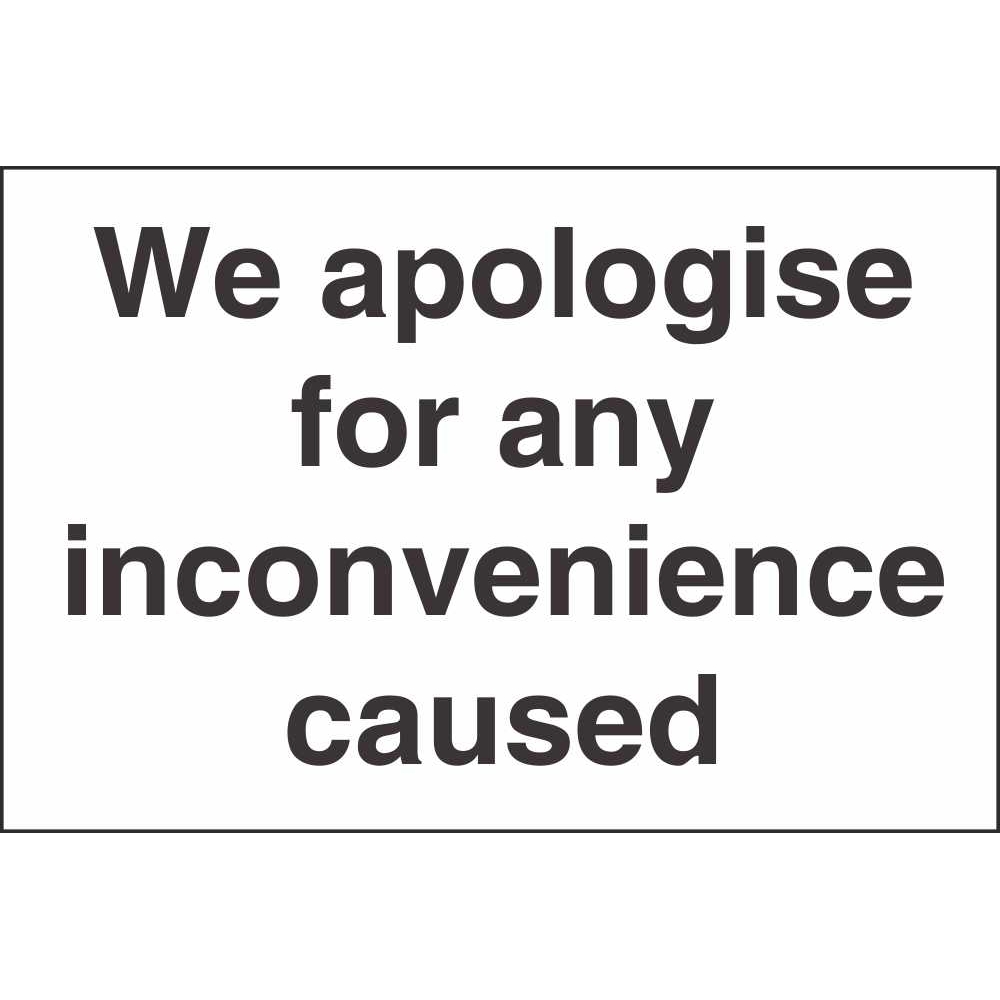
We Apologise For Any Inconvenience Caused Signs Site Notice Signs
"Allow me to express my sincerest apologies" is a great phrase that works in formal situations. It shows sincerity in your apology, which suggests you genuinely did not mean to upset someone or disturb them. This is a great option if you are trying to be respectable and polite.
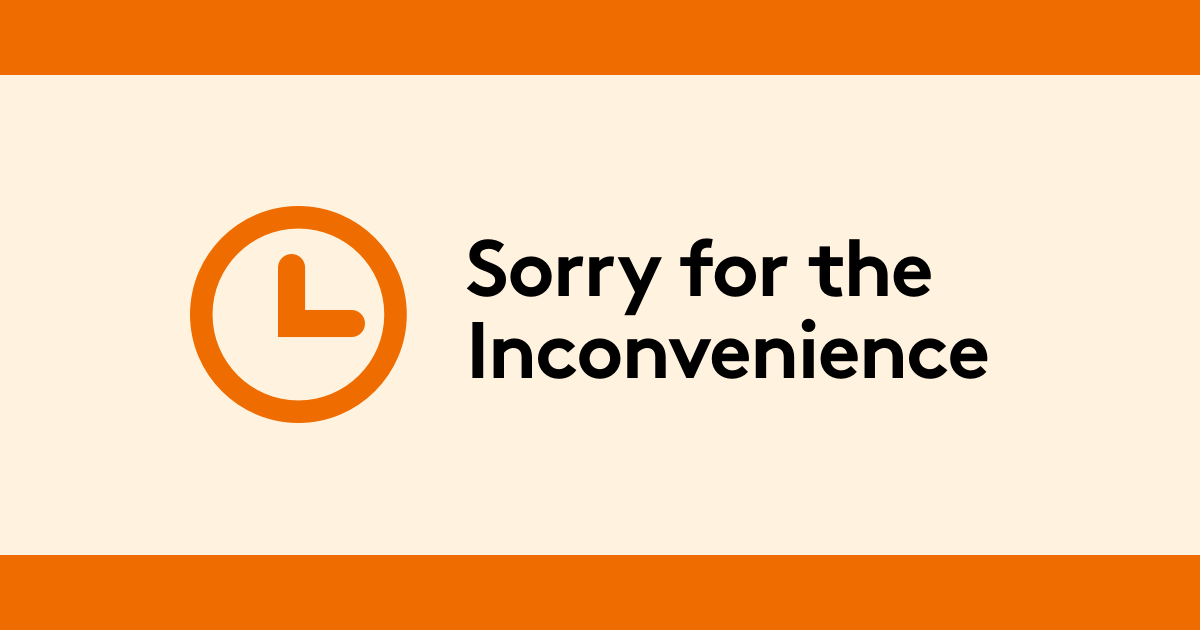
Sorry for the Inconvenience
Sorry for the inconvenience meaning. Using the "Sorry for the inconvenience" phrase and nothing else makes you look like you don't care; you just say what is supposed to be said. And that's the biggest trigger for customers. Because it's not like they're interested in your overall performance, the tools you use, and how well you shift between.
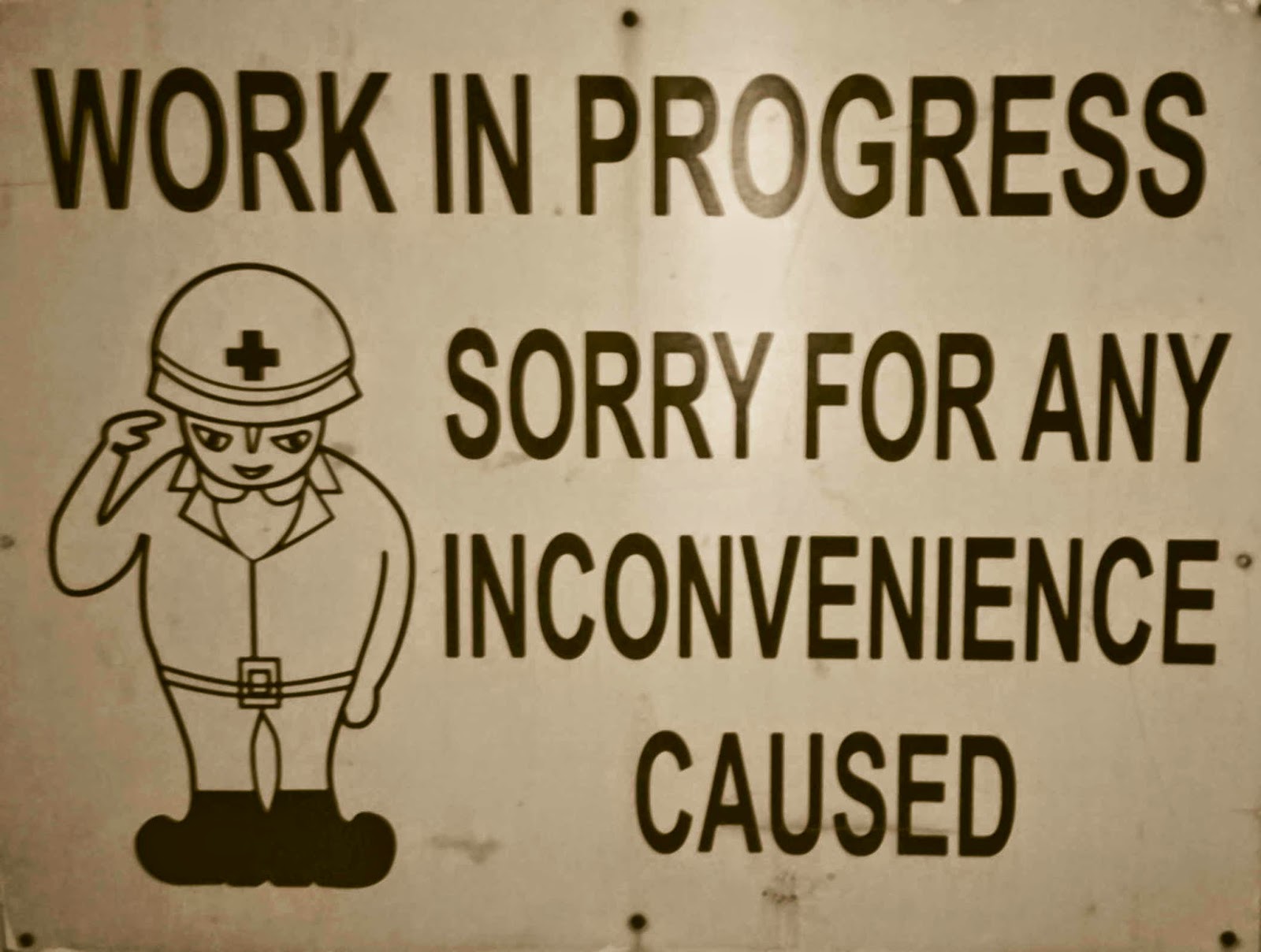
Mule's Blog Sorry for the Inconvenience!
"I apologize for the inconvenience" is a commonly used formal statement for taking responsibility for a self-inflicted error or uncontrollable situation. It is a practical linguistic device that fundamentally helps in rebuilding and maintaining social relationships that bind society together.
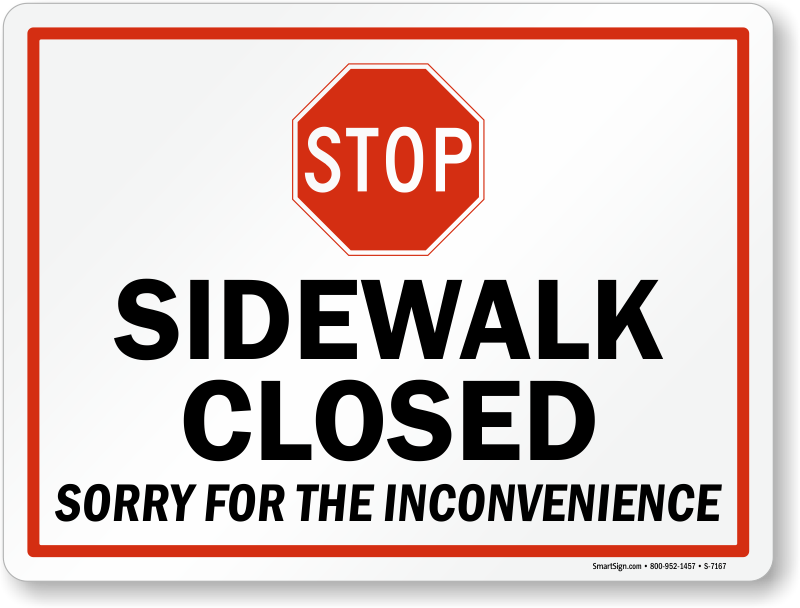
18 in. X 24 in. Sidewalk Closed Sorry For The Inconvenience Sign, SKU S7167
By saying 'sorry for the inconvenience', you express regret to a customer for the error and for the discomfort that your actions (or lack thereof) have caused. In customer support, it is common to use this phrase, but there are better ways of saying it. Why You Shouldn't Say 'I'm Sorry For The Inconvenience'

Sorry for the Inconvenience Five Alternatives
8 Sorry for the Inconvenience Email (Templates + Tips) Scrape data from LinkedIn in one click. Add to Chrome - it's free! It's tough when things go wrong, but the right words in an apology can work wonders. If your company has let a customer down lately, sending them a "sorry for the inconvenience" email can go a long way in making things right.

Notice We Are Temporarily Closed Sorry for the Inconvenience Sign New Signs
"I apologize for the inconvenience" is a great phrase in formal emails. We will recommend having a few alternatives ready to mix things up, though. Keep reading to learn how to say "I apologize for the inconvenience" professionally. You can also review the examples under each heading. What to Say Instead of "I Apologize for the Inconvenience"

Apologies For Any Inconvenience Were Sorry For Any Inconvenience Template Design HighRes
June 17, 2021 "Sorry for the inconvenience" is a canned response and is best avoided. Focus on the mistake you've made and the person affected by it to come up with an appropriate apology easier. Avoid common mistakes like denying responsibility, shifting blame and not following through.

"Sorry for the inconvenience " Sticker for Sale by foreveryone Redbubble
3 Ways to express 'Sorry for the Inconvenience' in Email: 1. 'I understand your frustration'. Source: spikenow.com. It is simple to say "Sorry for the Inconvenience" as a catchall apology, especially in customer-facing professions in professional contexts.
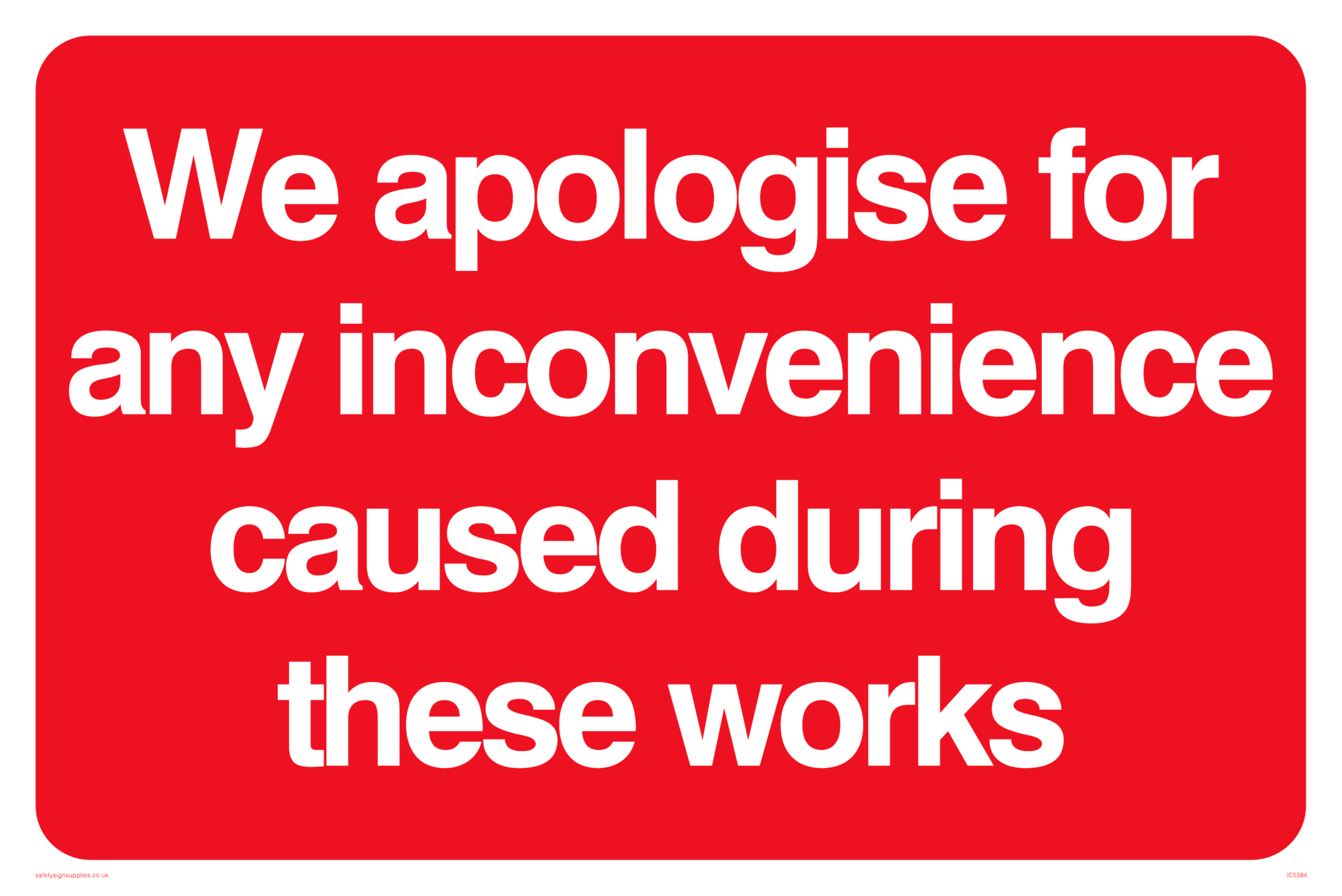
Sorry For The Inconvenience Caused Meaning Sorry Images for Inconvenience / I realize this is
Jun 22, 2023 How to write apology emails with 10 samples and a template Saying sorry is easy with our guide to apology emails. Here's a breakdown of the apology email format and 10 email samples. Lawrie Jones Writer In our email experience, sorry often is the hardest word to say. But if you've done something wrong, you should always apologize.

"Sorry for the inconvenience " Poster for Sale by foreveryone Redbubble
This is part of the problem with phrases like: "Sorry for the inconvenience.". They don't feel genuine and they miss an opportunity to show that you care. For more advice for showing that you care when apologizing in the contact centre, read our article: Customer Service Apologies - Keeping Sorry Fresh and Sincere.

Apologies For Any Inconvenience Were Sorry For Any Inconvenience Template Design HighRes
We are really sorry for the inconvenience. Please excuse us for the inconvenience. We apologize for the trouble this may have caused you. We value you as a customer and want to apologize for the inconvenience. We apologize for the inconvenience and would like to offer you a discount on your future order.

We Apologise For Any Inconvenience Caused Signs from Key Signs UK
'Sorry for the inconvenience!' At best, this phrase is a lazy token gesture. At worst, it can make customers feel ignored or disrespected. So, what's a better way to apologize for a mistake? How do you ensure your customers still respect you, even if they're getting in touch to complain? In this article, we'll be offering you a simple solution.

Sorry For The Inconvenience Canvas Prints Redbubble
"Sorry for the inconvenience" can feel insincere and impersonal. People say "I apologize for the inconvenience" as a way to address workplace mistakes or problems, both with fellow coworkers and customers. But this phrase is the go-to apology for most professionals, so it can sometimes come across as generic and ingenuine.